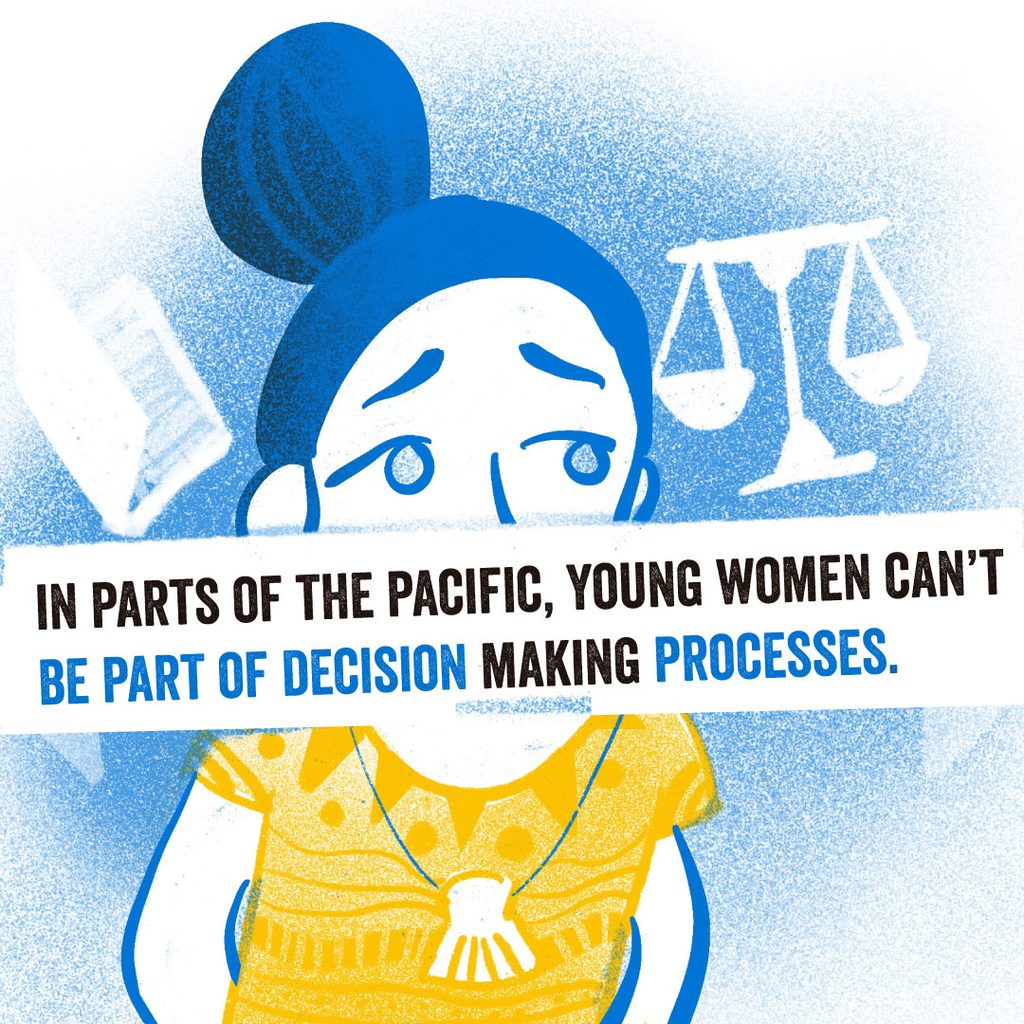Not Just a Girl, A Female Rights Advocate – Anamalia, 18, from Tonga
17 January 2022<strong><span class="has-inline-color has-black-color">As part of Plan International’s 2021 Asia-Pacific Girls Report: Voice, Choice, and Power, the research looked into the individual stories of young female activists across the region empowering themselves in the fight for gender equality. Here, we take a look at one of these fearless leaders, 18-year-old Anamalia, a youth mentor with the Talithia Project in Tonga, an NGO committed to empowering girls and young women aged 10-24.</span></strong>

“I am able to speak and channel discussions about how important it is for women to be in leadership, and how important it is to create a society that young girls and women feel safe to live in.”
In the Pacific, traditional leadership and educational systems tend to prescribe more traditional roles to women as homemakers or in more feminised sectors such as teaching and nursing. Generally, limited attention is given to educating young women regarding their potential as leaders and decision-makers.
For Anamalia, this lack of opportunity was the exact motivation she needed to become a youth mentor with the Talitha Project, supporting and empowering young girls in Tonga.
The Talitha Project
High rates of gender-based violence in the Pacific region affect young women’s potential to engage and be heard. The Talitha Project provides a safe space for girls and young women in Tonga to discuss and advocate about issues affecting girls and women, such as domestic violence, cyberbullying and sexual and reproductive health. By building their knowledge, confidence and skills, the project aims to give girls and young women a platform to feel educated and empowered. Significantly, the project also engages with men and boys to educate and help end gender violence.
In 2017 Anamalia started as a participant in Talith programmes, and now she has progressed through the organisation and helping to inform and shape the programme for girls, particularly in areas of empowerment and leadership – issues she is very passionate about.
Speaking out across the region
Anamalia’s desire and passion for female empowerment has taken her all across the Pacific and even Thailand to help open minds, educate and inform. From working alongside youth engagement activities with NGOs, like Habitat for Humanity New Zealand, to engaging in regional programmess such as the Pacific Girl Programme, Anamalia has had the opportunity to articulately advocate her wishes for more girls’ empowerment and leadership in national and regional forums.
“In these places, I am able to speak and channel discussions about how important it is for women to be in leadership, and how important it is to create a society that young girls and women feel safe to live in,” she explained. “I think every time that I’m up on that stage, I always take it to heart, the thousand other people that I’m representing. And that, for me, is always the highest point.”
“I think every time that I’m up on that stage, I always take it to heart, the thousand other people that I’m representing.
Advocating for leadership
When girls and young women engage in activities that they define and control, this helps them take on responsibilities, gain vital skills and acquire the confidence necessary to become empowered and successful activists.
Anamalia is one of many young female activists who are beginning to represent, advocate and raise awareness of the daily struggle’s girls and young women face. They are inspiring examples that show, when given a safe platform to speak, girls and young women are capable of making an impact in the fight for gender equality.
Plan International’s 2021 Asia-Pacific Girls Report listened and learned from many stories like Anamalia’s. Findings from the report emphasize how the rise of youth activism in Asia-Pacific is critical for progressing gender equality, leadership, and promoting advocacy messages. Yet it also urges governments and civil society to work harder to support women.
Online activity amidst the COVID-19 pandemic
Amidst rises in gender violence and discrimination throughout the pandemic in the region, challenges with internet connectivity in Tonga, especially in rural areas, has meant young female activists have felt barriers to activist networking. Despite these challenges, Anamalia and other young activists have continued their work during 2021, and their voices have not been stifled.
The future
While there has been positive progress in advancing gender equality, there are still numerous barriers faced by girls, women and gender and sexual minorities. For Anamalia, culture is still a huge barrier in Tonga. Her vision, like those highlighted in Plan International’s 2021 report, is that everyone will work together to advance gender equality.
“I hope that our culture, in the next five to 10 years’ time, would not be one of the biggest barriers, as it is now, because one of the biggest barriers to advocating in gender equality is culture. So, that is a dream for the future, that Government and everyone, our communities, would work together to help break that barrier down. But just to get everyone to work together – that is my dream for the future.”
As young female advocates continue to speak up and are given the space to do so by organisations like the Talitha Project, those cultural barriers could be brought down quicker than expected.
Categories: Campaigns, Protection from violence, Youth empowerment


